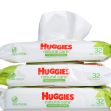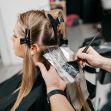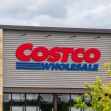In the 1970s, Coca-Cola conducted an ad campaign that claimed its soft drink was “The Real Thing.” Now, fifty years later, a group of consumers challenged the soft drink’s advertising claims about what the soft drink really contains. They said Coke is “mislabeled.” The court disagreed and as a result, consumers will not get any more truth in Coke’s advertising slogans. The Ninth Circuit decertified the plaintiffs’ class due to a lack of standing and a failure to demonstrate harm.
A three-judge panel of the Ninth Circuit Court of Appeals on August 31, reversed the ruling of the United States District Court for the Northern District of California. Last February, the district court had granted certification to a class of consumers who alleged that Coca-Cola is mislabeled. The soft drink, plaintiffs correctly claim, contains phosphoric acid, a chemical preservative, while its advertising slogan states it has “no artificial flavors, no preservatives added, since 1886.” The opinion was written by Circuit Judges Marsha S. Berzon, Morgan Christen, and Bridget Bade.
Coke is sending mixed messages. Despite its ads, the cans clearly list the following ingredients: carbonated water, high fructose corn syrup, caramel color, phosphoric acid, natural flavors, and caffeine. But its ads state the opposite.
The court’s decertification of the class centered on whether plaintiffs have standing. The Court opinion concluded that Article III of the Constitution and on-point precedents have ruled that standing requires “an invasion of a legally protected interest that is ‘concrete and particularized’ and ‘actual or imminent, not conjectural or hypothetical.’” None was present here, so the class action suit will not move forward.
The opinion next cited a case in which a consumer satisfied the standing requirement. A woman said she would not purchase flushable diapers now, but “she would like to” and “might purchase” them in the future when the product is improved. She said it would be “easier and more sanitary” to flush them than to put them in the garbage. This testimony led the court to rule that the “informational injury” she suffered was concrete.
The Coca-Cola case had no such concrete injury. No plaintiff expressed a desire to purchase Coke that was free from artificial ingredients, nor did any of them allege an imminent injury. Instead, they merely acknowledged that if Coke were properly labeled, “they would consider purchasing it.” The court called these statements mere “abstract interest(s) that were insufficient to establish Article III standing.” The lead named plaintiff, George Eugurasoff, even testified that he had not stopped drinking Coke.
Another plaintiff, Rachel Dube, gave a similarly vague answer. She testified that she did not know that Coke contained artificial flavors and chemical preservatives, and had she known, she would have purchased “very limited quantities” because she would then have known it “wasn’t as healthy an option” as she thought it was. Unlike the woman in the flushable diapers case, she did not testify that she would then want to purchase properly labeled Coke in the future.
Four other members of the plaintiff class also submitted declarations that merely said they would “consider purchasing Coke” depending on several factors. One of these was the disclosure about phosphoric acid. But no one said whether they would buy the soda if it were free of the chemical. They said their future purchasing decisions would depend on what replaced the artificial ingredient and “the price of Coke relative to other beverages.”
The court strongly stated that “allegations of possible future injury are not sufficient to establish standing". It was not enough for class members to say they would “consider” purchasing Coke if it was properly labeled since these statements did not show “actual or imminent threat of future harm.”
The plaintiffs’ case had one other fatal flaw. Instead of meeting the required standard for demonstrating standing, two of them admitted that their goal was not to rid the soft drink of phosphoric acid. Instead, they wanted to make sure that Coke told the truth on its labels. They sought accuracy, but this interest, though legitimate, does not pass the standing test. Plaintiffs’ desire for Coke to “truthfully label its products without more, is insufficient to demonstrate that they have suffered any particularized adverse effects,” the court concluded.
No injury, no relief.






